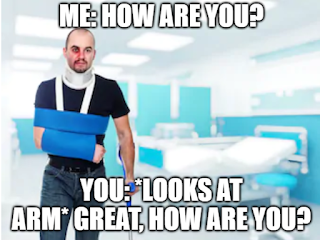Sejal Says, "Psychology Can Help Us Understand Our Racial Biases"
Understanding our own racial biases is something we all struggle with, even when we don't always acknowledge those struggles.
We used to think about racism in a very simple way – that people had negative thoughts, negative feelings, hatred toward a group. But since the 1960s when there was civil rights legislation, it changed the way we thought about race because it was not only immoral to think that way, but it was illegal to discriminate. And what we think is that racism has become more subtle since then. That people still have negative feelings, but they may not be aware of those negative feelings. Instead of feelings of hatred, it’s more like feelings of avoidance and discomfort. That’s where the name aversive racism comes from.

Yeah, there’s research that shows that only a small proportion of Americans today have old-fashioned kind of racism, explicit kind of racism. But the majority of white Americans, because they’ve grown up in a culture that has been historically racist in many ways because they’re exposed to the media that associates violence, drugs and poverty with certain groups.
Now, if you still don't believe that this aversive racism exists, let's analyze a few examples in society. When certain people clutch their purses in areas of low-income citizens, they are subconsciously associating the lower class with robbers and degenerates. Also, when people assume that only Asians can be exceptionally smart or that only white people can be jocks, they are still a part of the racism that exists in society. In one New York Time article we read in class, John Taylor said "Even subtle discrimination like steering minorities to certain neighborhoods or failing to offer them the homes most likely to increase in value would result in substantially weaker accumulation of wealth". This proves that segregation affects things outside of society such as in housing and real estate.
So, if this racism is so deeply rooted in our society, how do we end it? Is implementing the colorblindness ideal an efficient means of ending this inequality? In my opinion, the colorblindness ideal is simply ignorant. By disassociating the color of one's skin from their persona, you are taking away the culture of a person and this raises more issues. In my mind, the only solution to ending racism is adopting a growth mindset where people respect everyone equally and don't let their preconceived biases regarding race affect their relationships.
We used to think about racism in a very simple way – that people had negative thoughts, negative feelings, hatred toward a group. But since the 1960s when there was civil rights legislation, it changed the way we thought about race because it was not only immoral to think that way, but it was illegal to discriminate. And what we think is that racism has become more subtle since then. That people still have negative feelings, but they may not be aware of those negative feelings. Instead of feelings of hatred, it’s more like feelings of avoidance and discomfort. That’s where the name aversive racism comes from.
Yeah, there’s research that shows that only a small proportion of Americans today have old-fashioned kind of racism, explicit kind of racism. But the majority of white Americans, because they’ve grown up in a culture that has been historically racist in many ways because they’re exposed to the media that associates violence, drugs and poverty with certain groups.
Now, if you still don't believe that this aversive racism exists, let's analyze a few examples in society. When certain people clutch their purses in areas of low-income citizens, they are subconsciously associating the lower class with robbers and degenerates. Also, when people assume that only Asians can be exceptionally smart or that only white people can be jocks, they are still a part of the racism that exists in society. In one New York Time article we read in class, John Taylor said "Even subtle discrimination like steering minorities to certain neighborhoods or failing to offer them the homes most likely to increase in value would result in substantially weaker accumulation of wealth". This proves that segregation affects things outside of society such as in housing and real estate.
So, if this racism is so deeply rooted in our society, how do we end it? Is implementing the colorblindness ideal an efficient means of ending this inequality? In my opinion, the colorblindness ideal is simply ignorant. By disassociating the color of one's skin from their persona, you are taking away the culture of a person and this raises more issues. In my mind, the only solution to ending racism is adopting a growth mindset where people respect everyone equally and don't let their preconceived biases regarding race affect their relationships.

I really liked how you researched more into racial bias and pschology, expecially because we only talked about the different kinds of racism at school. Also the connection to violent images and racism is really nice because this adds to the stereotypes that become associated with a certain race. I did not know about the types of racism that exist and it is interesting to think about how racism evolved.
ReplyDeleteI like how you gave examples that people do so often that traces back into racism at one point. I didn't know this type really existed even though many people probably internally feel this way. The amount of research and information you put was really helpful and interesting to read!
ReplyDelete